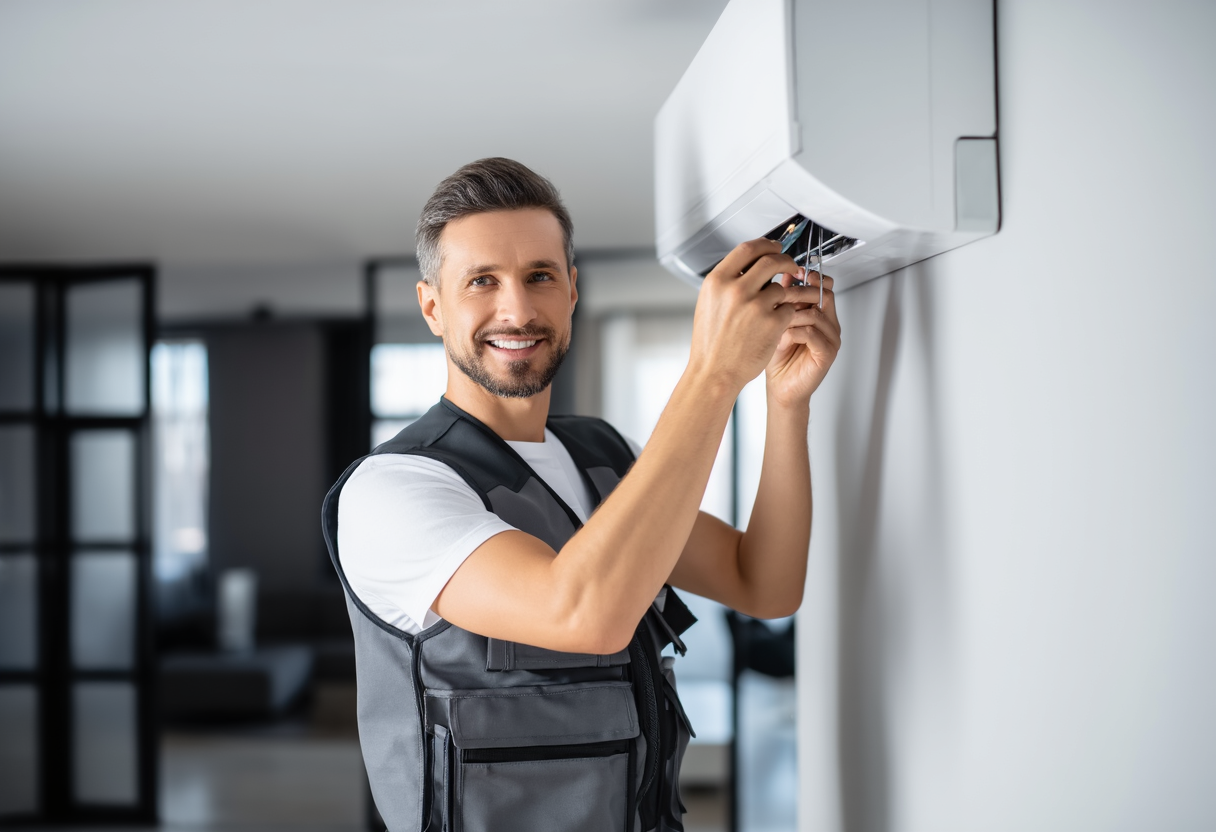A Complete Guide to Air Conditioner Cleaning and Maintenance
🕒 2025-09-15
When was the last time you cleaned your air conditioner? If you’re like most homeowners, the answer might be “never” or “a long time ago.” However, a dirty AC unit not only reduces cooling efficiency—it can also affect your health and rack up your energy bills.
🌬️ Why Cleaning Your AC Matters
- Improved Air Quality Dust, mold, and allergens can accumulate in your AC unit and ducts, reducing the air quality in your home.
- Energy Efficiency A clean AC runs more efficiently, helping lower electricity bills over time.
- Extend Equipment Life Regular maintenance helps prevent breakdowns and extends the life of your unit.
- Better Cooling Performance Dust and debris clog filters and coils, which restrict airflow and reduce cooling power.
⏱️ How Often Should You Clean Your Air Conditioner?
- Filters: Every 1–3 months (more frequently if you have pets or allergies).
- Indoor Unit Coils: Every 6 months.
- Outdoor Condenser Coils: Once or twice a year, especially before summer.
- Professional Maintenance: At least once a year.
🧽 DIY Cleaning Steps (For Window/Split Units)
⚠️ Warning: Always unplug the unit before cleaning. Never use harsh chemicals or high-pressure water directly on components.
- Clean or Replace the Filter Remove the filter and wash it with warm, soapy water. Let it dry completely. If it’s a disposable filter, replace it with a new one.
- Wipe the Exterior Use a damp cloth to clean dust from vents and the casing.
- Vacuum the Coils Use a soft brush attachment to vacuum dust from evaporator and condenser coils.
- Check the Drain Line Clogged drain lines can lead to mold or water leakage.
- Inspect the Fan and Blades Wipe down fan blades if accessible.
🛠️ When to Hire a Professional
While basic cleaning can be done at home, certain issues require a licensed HVAC technician:
- Mold inside the unit
- Unusual noises or smells
- Weak airflow despite cleaning
- Refrigerant leaks
- Annual inspection and deep cleaning
🧯 Safety & Health Tips
- Always clean AC units during mild weather when the system is off.
- Wear gloves and a mask if you’re sensitive to dust or mold.
- Use only non-toxic, pet-safe cleaners.
- Dispose of dirty filters properly.
✅ Final Thoughts
Regular AC cleaning is more than just a maintenance task—it’s a matter of comfort, efficiency, and health. Whether you take the DIY route or call in a pro, don’t wait until your AC stops working on the hottest day of the year.
